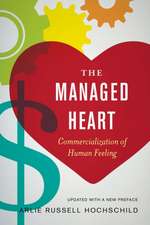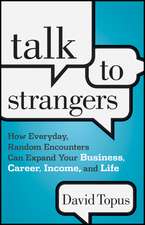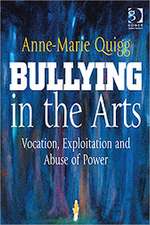The Ashgate Research Companion to Moral Panics
Editat de Charles Krinskyen Limba Engleză Hardback – 23 ian 2013
Preț: 861.19 lei
Preț vechi: 1148.35 lei
-25% Nou
Puncte Express: 1292
Preț estimativ în valută:
164.80€ • 171.08$ • 137.42£
164.80€ • 171.08$ • 137.42£
Carte tipărită la comandă
Livrare economică 24 martie-07 aprilie
Preluare comenzi: 021 569.72.76
Specificații
ISBN-13: 9781409408116
ISBN-10: 1409408116
Pagini: 500
Dimensiuni: 169 x 244 x 38 mm
Greutate: 1.2 kg
Ediția:New.
Editura: Taylor & Francis
Colecția Routledge
Locul publicării:Oxford, United Kingdom
ISBN-10: 1409408116
Pagini: 500
Dimensiuni: 169 x 244 x 38 mm
Greutate: 1.2 kg
Ediția:New.
Editura: Taylor & Francis
Colecția Routledge
Locul publicării:Oxford, United Kingdom
Cuprins
Contents: Introduction: the moral panic concept, Charles Krinsky; Part I The Evolution of the Moral Panic Concept: Overview; The genealogy and trajectory of the moral panic concept, Erich Goode and Nachman Ben-Yehuda; Tracking moral panic as a concept, Toby Miller; Assemblages of moral politics: yesterday and today, Alan Hunt; The problems with moral panic: the concept’s limitations, Joel Best. Part II Sex Panics: Overview; Public punitiveness, mediation, and expertise in sexual psychopath policies, Chrysanthi S. Leon and John J. Brent; Revelation and cardinals’ sins: moral panic over ’pedophile priests’ in the United States, Pamela D. Schultz; The demise of the same sex marriage panic in Massachusetts, Jaime McCauley; Considering the agency of folk devils, Mary deYoung. Part III Media Panics: Overview; From nickel madness to the house of dreams: moral panic and the emergence of American cinema, Charles Krinsky; Sexual predators, internet addiction, and other media myths: moral panic and the disappearance of Brandon Crisp, Patricia Molloy; MyMoralPanic: adolescents, social networking, and child sex crime panic, Samantha A. Smith and Simon A. Cole. Part IV Moral Panics over Children and Youth: Overview; Moral panics and the young: the James Bulger murder, 1993, Máire Messenger Davies; Children pushed aside: moral panic over the family and the state in contemporary Poland, Magdalena Rek-Wozniak and Wojciech Wozniak; Moral panics versus youth problem debates: three conceptual insights from the study of Japanese youth, Tuukka Toivonen. Part V Moral panics and Governance: Overview; Governing through moral panic: the governmental uses of fear, Willem Schinkel; Hidden in plain sight: moral panics and the favelas of Rio de Janeiro, Natália De’Carli and Mariano Pérez Humanes; Intermedia agenda setting and the construction of moral panics: on the media and policy influence of Steven Soderbergh’s Traffic, Bryan E. Denham; I vote and I tote: moral panics, resista
Notă biografică
Charles Krinsky has taught at several colleges and universities in the United States, including the University of California, Irvine, and the California State Polytechnic University, Pomona.He is editor of Moral Panics over Contemporary Children and Youth.
Recenzii
'I know of no other book that comes close to providing such a comprehensive look at the history of approaches to understanding moral panics, along with contemporary applications and prospects for future development.'
Barry Glassner, Lewis & Clark College, USA and author of The Culture of Fear
'The Ashgate Companion has drawn together a comprehensive, considered and balanced group of scholarly papers that provide ways of understanding the moral panic phenomenon. Like all works by this publisher, there is a comprehensive bibliography and an excellent index as well a class notes to guide teachers in examining this fascinating and highly contested topic.'
M/C Reviews
'Charles Krinsky’s edited collection, The Ashgate Research Companion to Moral Panics, is a timely intervention that offers a comprehensive range of critical perspectives and empirical studies from a cross-section of international scholars and disciplinary backgrounds, including media studies, literary studies, history, legal studies and sociology... it fulfils its promise to provide a ’comprehensive survey of a concept that is increasingly influential in a number of disciplines as well as in popular culture.' (book blurb)
'As a research companion, the collection offers both students and scholars a solid grounding in the theoretical origins and critiques of what is clearly still an evolving concept.'
Media International Australia
'In embracing this concept so comprehensively, the volume has much to offer, and Krinsky’s overviews preceding each section are a helpful feature. It will no doubt prove effective in keeping the moral panic concept vital and useful.'
European Journal of Communication
'Krinsky’s edited collection offers a range of interesting case studies that highlight refreshing ways to apply the concept, with sound theoretical reflections for taking it forward.... This book adds an interesting and creative element to the concept as a whole and, with an array of case studies.'
Barry Glassner, Lewis & Clark College, USA and author of The Culture of Fear
'The Ashgate Companion has drawn together a comprehensive, considered and balanced group of scholarly papers that provide ways of understanding the moral panic phenomenon. Like all works by this publisher, there is a comprehensive bibliography and an excellent index as well a class notes to guide teachers in examining this fascinating and highly contested topic.'
M/C Reviews
'Charles Krinsky’s edited collection, The Ashgate Research Companion to Moral Panics, is a timely intervention that offers a comprehensive range of critical perspectives and empirical studies from a cross-section of international scholars and disciplinary backgrounds, including media studies, literary studies, history, legal studies and sociology... it fulfils its promise to provide a ’comprehensive survey of a concept that is increasingly influential in a number of disciplines as well as in popular culture.' (book blurb)
'As a research companion, the collection offers both students and scholars a solid grounding in the theoretical origins and critiques of what is clearly still an evolving concept.'
Media International Australia
'In embracing this concept so comprehensively, the volume has much to offer, and Krinsky’s overviews preceding each section are a helpful feature. It will no doubt prove effective in keeping the moral panic concept vital and useful.'
European Journal of Communication
'Krinsky’s edited collection offers a range of interesting case studies that highlight refreshing ways to apply the concept, with sound theoretical reflections for taking it forward.... This book adds an interesting and creative element to the concept as a whole and, with an array of case studies.'
Descriere
The Ashgate Research Companion to Moral Panics offers a comprehensive assemblage of cutting-edge critical and theoretical perspectives on the concept of moral panic. All chapters represent original research by many of the most influential theorists and researchers now working in the area of moral panic, including Nachman Ben-Yehuda and Erich Goode, Joel Best, Chas Critcher, Mary deYoung, Alan Hunt, Toby Miller, Willem Schinkel, Kenneth Thompson, Sheldon Ungar, and Grazyna Zajdow.










